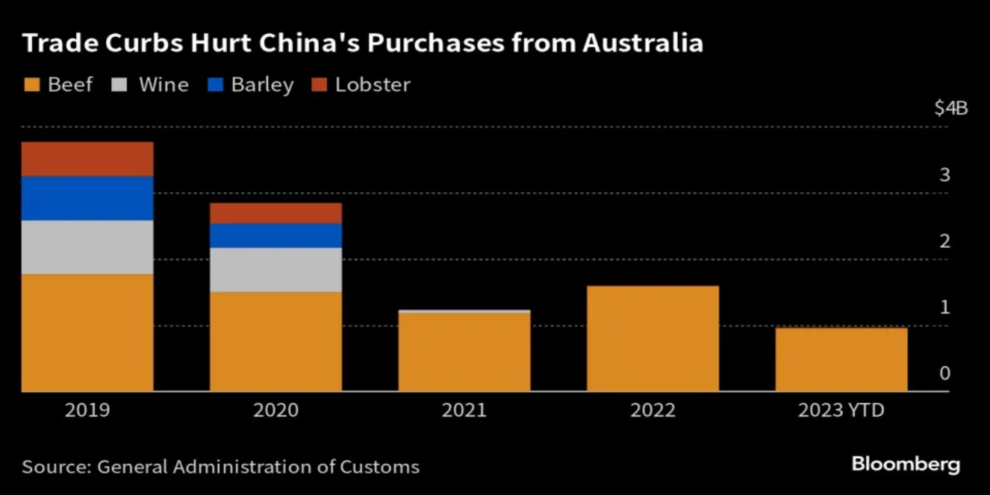Beijing imposed a variety of restrictions in 2020, from tariffs to unofficial bans, after Australia called for an international investigation into the origins of Covid-19. It capped a souring of relations that began in 2018, when Canberra barred Huawei Technologies Co. from participating in its 5G network.
Losing their biggest market has been hard to bear for many exporters, but prospects have improved immensely this year as some of the restrictions have been rolled back. Barley sales are the latest to benefit from a thaw in political tensions after Beijing scrapped its duties on the Australian grain earlier this month.
It follows probably the biggest breakthrough that came at the start of the year, when China rescinded its ban on Australian coal. Controls on cotton and timber have also eased in recent months, while restrictions remain in place on wine, lobster and beef. Exports of copper ore have collapsed to negligible amounts since Chinese traders were ordered to halt purchases at the end of 2020.
Taking 2019 as a baseline, over the three years from 2020 to 2022, export revenue affected across those eight commodities totaled about $31 billion, according to a calculation based on Chinese customs data. That’s not an enormous amount of money as a proportion of Australia’s overall exports of goods, which topped $400 billion last year. And it counts for even less in China’s vastly bigger economy. But some individual industries have found it challenging to cope with the collapse in demand and find new markets.
Source : Yahoo Finance
















Add Comment